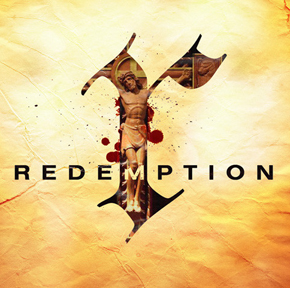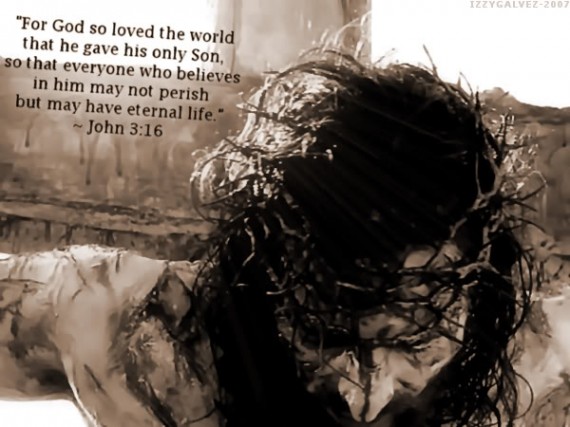 Have you ever listened to some of the songs Christians sing around Easter? We seem to be infatuated with the blood of Jesus.
Have you ever listened to some of the songs Christians sing around Easter? We seem to be infatuated with the blood of Jesus.
Take this song as an example:
There is a fountain filled with blood drawn from Emmanuel’s veins;
And sinners plunged beneath that flood lose all their guilty stains.
Or this one:
Have you been to Jesus for the cleansing power?
Are you washed in the blood of the Lamb?
Are you fully trusting in His grace this hour?
Are you washed in the blood of the Lamb?Refrain:
Are you washed in the blood,
In the soul cleansing blood of the Lamb?
Are your garments spotless? Are they white as snow?
Are you washed in the blood of the Lamb?
Then there is this song:
What can wash away my sin?
Nothing but the blood of Jesus.
What can make me whole again?
Nothing but the blood of Jesus.Refrain:
O precious is the flow that makes me white as snow;
No other fount I know; nothing but the blood of Jesus.
 These songs have images of a bloody river and a fountain filled with blood drawn from Emmanuel’s veins. Yikes! Some Christian songs sound more like a gruesome and gory scene from a Freddy Krueger movie than from something having to do with Jesus Christ.
These songs have images of a bloody river and a fountain filled with blood drawn from Emmanuel’s veins. Yikes! Some Christian songs sound more like a gruesome and gory scene from a Freddy Krueger movie than from something having to do with Jesus Christ.
And what’s this about washing in the blood of the lamb? That sounds an awful lot like some ancient Pagan sacrificial rituals where worshippers pour the blood of bulls, goats, and lambs over their heads.
Is this really what God wants from us? To take baths in the blood of Jesus? To swim in rivers of blood and dance around in bloody fountains?
What is the deal with the blood of Jesus?
I fully admit that I used to focus a lot on the blood of Jesus as well. In fact, I once preached a whole sermon about the painful trial and bloody ordeal that Jesus experienced on the cross.
But in recent years, I have begun to wonder if all this emphasis on the blood of Jesus, including His suffering and pain on the cross, is what Jesus really wants.
Does Jesus want us to focus on the blood He spilled and the pain He endured on the cross?
I used to think so, but in recent years, I am not so sure.
Reservations About the Blood of Jesus
One of the first things that made me wonder about our infatuation with they blood of Jesus is the realization that the Gospels don’t say much about the blood of Jesus. Similarly, there is hardly any mention about His suffering and pain. For the most part, the Gospel accounts of the crucifixion of Jesus are fairly benign.
 They report the details of what happened and what was said, but they report almost nothing about the gruesome nature of crucifixion or the pain that Jesus must have endured.
They report the details of what happened and what was said, but they report almost nothing about the gruesome nature of crucifixion or the pain that Jesus must have endured.
Then more recently, I read the following section from Darin Hufford’s book The Misunderstood God:
We have scientifically based teachings that walk us through the pain and suffering Jesus must have gone through during the Crucifixion. We make movies that dramatize the flogging and beating He underwent on our behalf. At Easter we put together pageants and invite outsiders to come and watch Jesus get the tar beat out of Him for their sins.
We have come to believe that it is God’s heart to hold this moment over the heads of His children in an effort to get them to obey the rules. If we are graphically reminded of the pain and suffering He underwent on our behalf, perhaps we will do our best to repay Him by living a right life.
The God I grew up with was like the mother who constantly reminded her kids of the pain she went through during childbirth in an effort to guilt them into doing what she wants. … Sadly, the gospel message has been affected by this way of thinking. “God loves you; come to Him,” has been turned into, “Jesus got a major beating that was meant for you, so come to Him.”
… Imagine if a man broke into my home and was planning on killing my wife and children, but I convinced him to take my life instead of theirs. If he let them escape and then proceeded to take me into a back room and film himself torturing me for hours until finally taking my life, do you think I would ever want my family to see that videotape? Absolutely not! I would want them to remember my life and my love for them. There is nothing inside me that would ever want them to view the pain I underwent to save their lives. That would break their hearts.
This is how God feels when we reenact the stations of the cross in an effort to riddle people with guilt and condemnation. It doesn’t motivate; it exasperates. This is not what love desires (pp. 63, 67).
He makes a good point, doesn’t he?
One could argue, I suppose, that the Gospel authors barely mentioned the blood and gore because the original readers of the Gospel accounts were quite familiar with the agonizing nature of crucifixion, and since most of us are not, the details need to be presented. To some degree, I hold to this argument myself, which is why I continue to keep online my study about the pain of crucifixion.
 Yet at the same time, if we want to truly understand what the Gospel authors were saying, we need to do our best to let them provide the details they think are important, and try to set aside the rest as nothing more than interesting historical side notes.
Yet at the same time, if we want to truly understand what the Gospel authors were saying, we need to do our best to let them provide the details they think are important, and try to set aside the rest as nothing more than interesting historical side notes.
And when it comes to understanding what the Gospel authors are saying about the crucifixion of Jesus, they have chosen to focus very little of their attention on the suffering and blood of Jesus.
So if we want to understand the Gospels, we should do the same.
The blood of Jesus is not that big of a deal in the Gospels, nor is His pain and suffering.
Jesus went to the cross out of love, to rescue us from sin, death, and devil, but since the Gospels (or the rest of the New Testament for that matter) don’t place much emphasis on the blood of Jesus or the pain He went through on the cross, maybe we shouldn’t either…
The cross of Jesus is CENTRAL to everything!
Transform your life and theology by focusing on the crucifixion and resurrection of Jesus:
Fill out the form below to receive several emails from me about the death and resurrection of Jesus.
(Note: If you are a member of RedeemingGod.com, login and then revisit this page to update your membership.)





 The crucifixion and resurrection of Jesus forms the foundation for everything I write on this blog. Everything.
The crucifixion and resurrection of Jesus forms the foundation for everything I write on this blog. Everything.

 The first is what the writer of the book of Hebrews says about this event in Hebrews 11:28. In that text, the author clearly hesitates from saying that it was God who killed the firstborn sons of Egypt and writes instead about “he who destroyed the firstborn.” The author of Hebrews seems to be saying that it was the destroyer who destroyed the firstborn sons of Egypt, and it was God who kept the destroyer from touching the sons of those families who had the blood of the lamb on their doorpost.
The first is what the writer of the book of Hebrews says about this event in Hebrews 11:28. In that text, the author clearly hesitates from saying that it was God who killed the firstborn sons of Egypt and writes instead about “he who destroyed the firstborn.” The author of Hebrews seems to be saying that it was the destroyer who destroyed the firstborn sons of Egypt, and it was God who kept the destroyer from touching the sons of those families who had the blood of the lamb on their doorpost. Rather than kill the firstborn sons of His enemies, Jesus, the only begotten Son of God, lets Himself be killed by His enemies.
Rather than kill the firstborn sons of His enemies, Jesus, the only begotten Son of God, lets Himself be killed by His enemies.
 How can a God who says "Love your enemies" (Matthew 5:44) be the same God who instructs His people in the Old Testament to kill their enemies?
How can a God who says "Love your enemies" (Matthew 5:44) be the same God who instructs His people in the Old Testament to kill their enemies?
 In
In  Up until the crucifixion of Jesus, and even in the minds of most today, humanity believed the essential lie of the devil, that if someone was attacking you, you attack back. If someone was threatening you, you strike first and strike hard.
Up until the crucifixion of Jesus, and even in the minds of most today, humanity believed the essential lie of the devil, that if someone was attacking you, you attack back. If someone was threatening you, you strike first and strike hard.

 Third, I am not a fan of the Penal Substitutionary theory of the atonement. I am a proponent of the Christus Victor view. Ryken’s book is overflowing with imagery, language, and themes from the Penal Substutionary view, and in my opinion, this perspective damages our view of God and what Jesus actually accomplished on the cross. This topic is so large, I cannot say anything else about it here.
Third, I am not a fan of the Penal Substitutionary theory of the atonement. I am a proponent of the Christus Victor view. Ryken’s book is overflowing with imagery, language, and themes from the Penal Substutionary view, and in my opinion, this perspective damages our view of God and what Jesus actually accomplished on the cross. This topic is so large, I cannot say anything else about it here. 